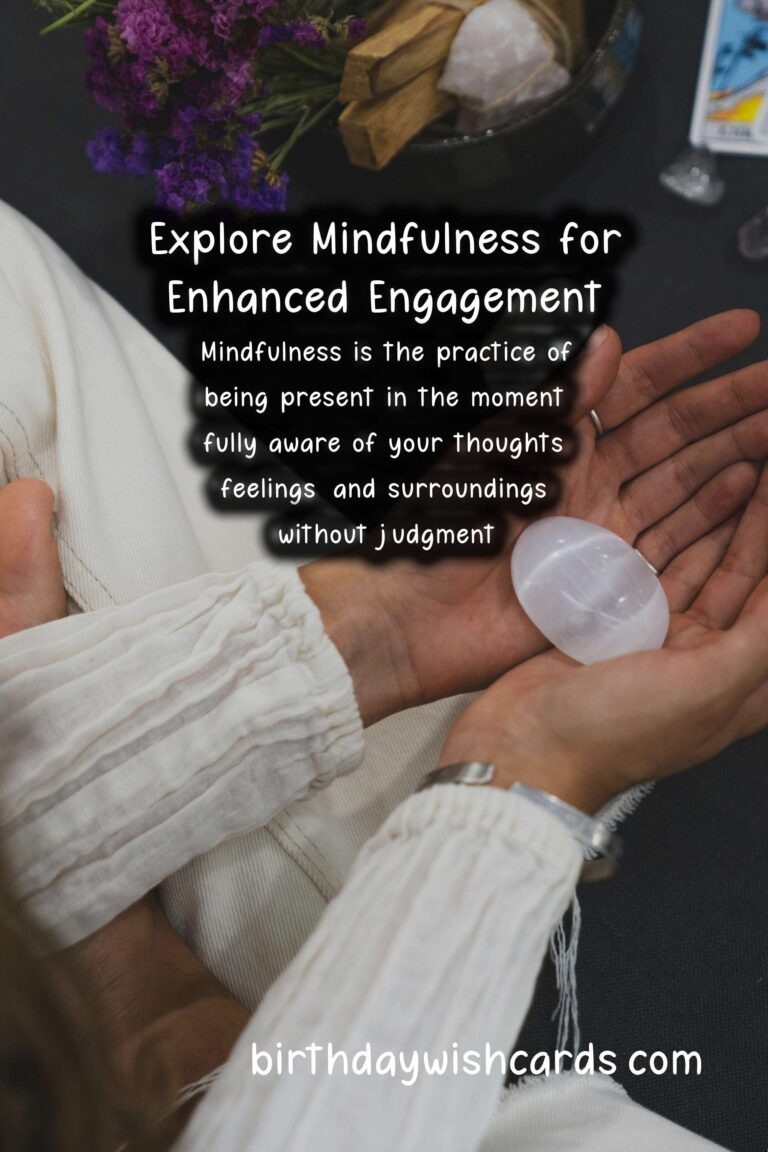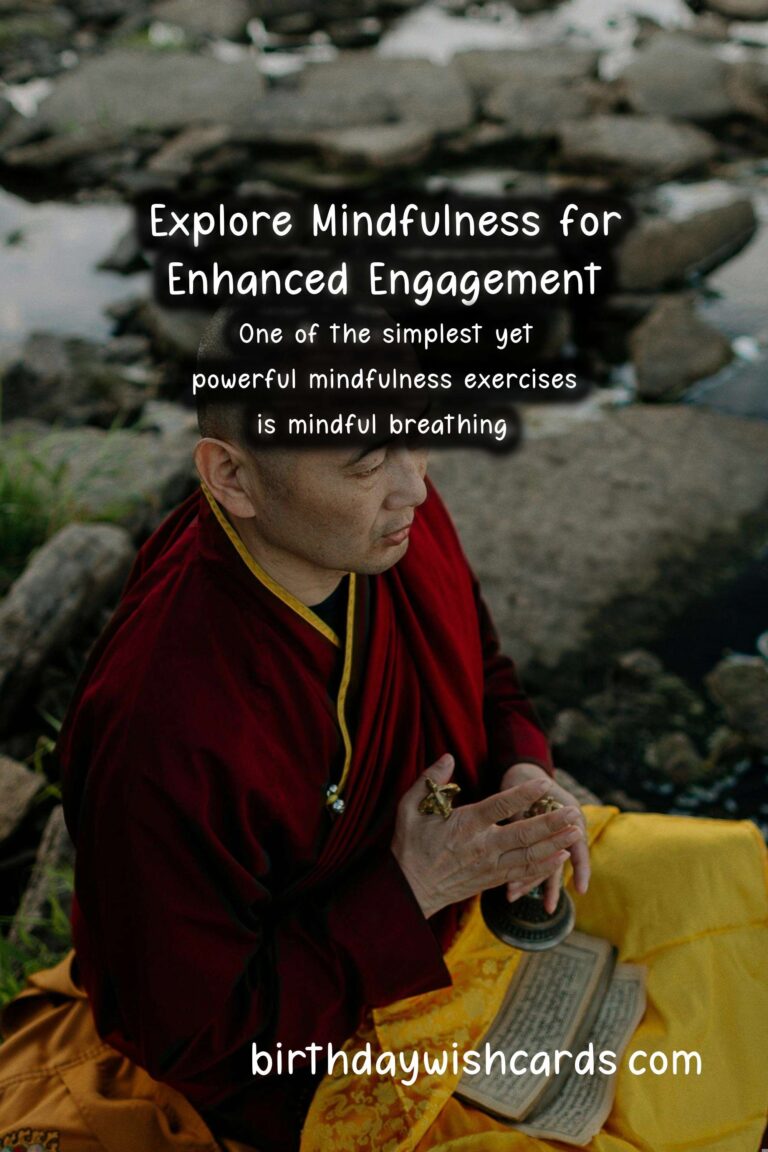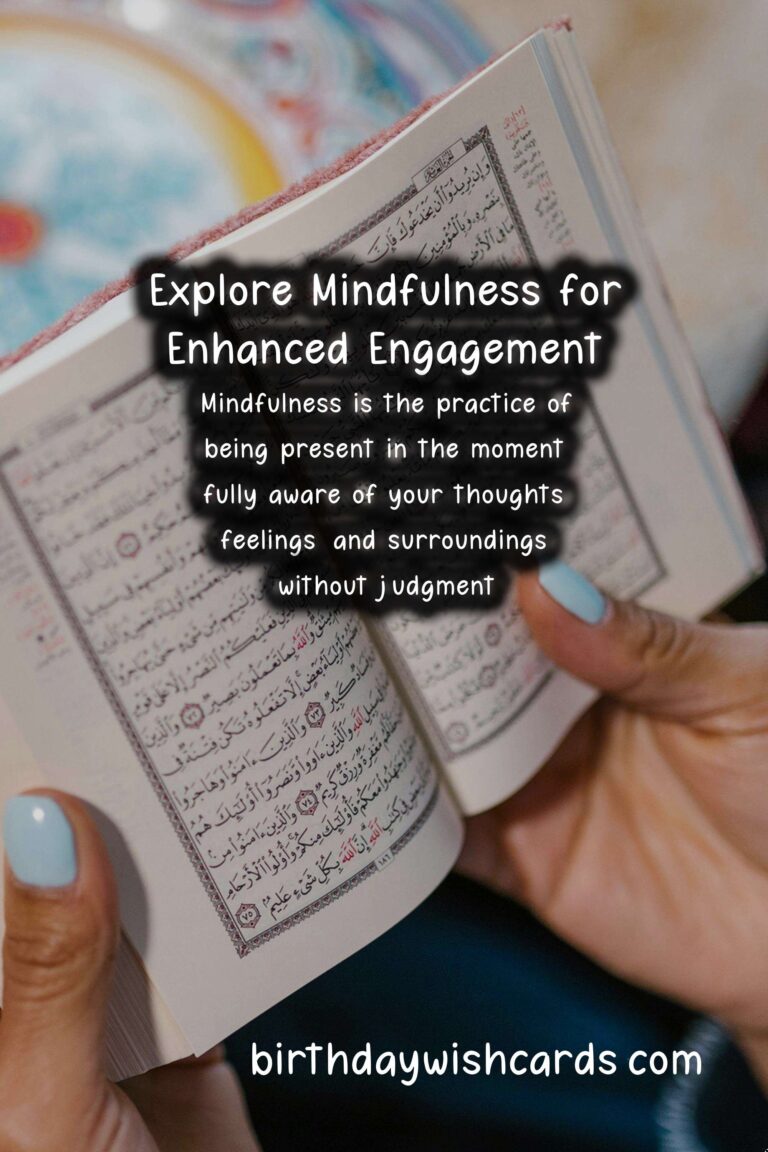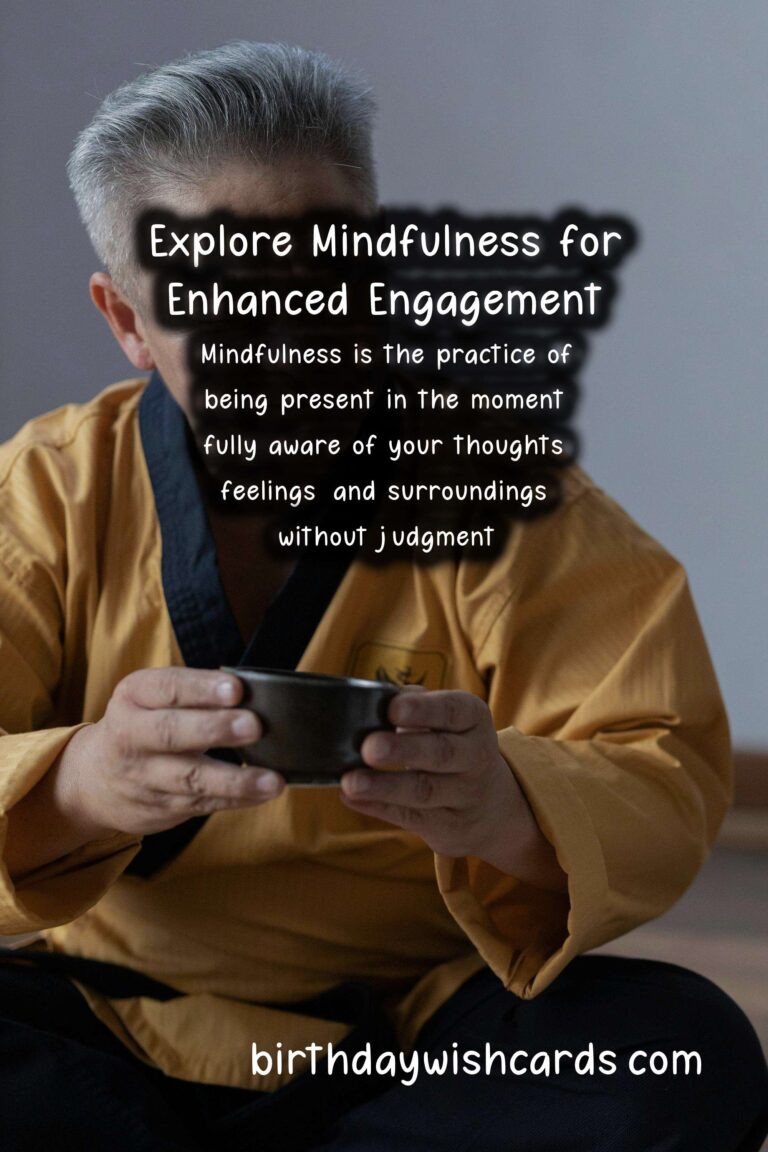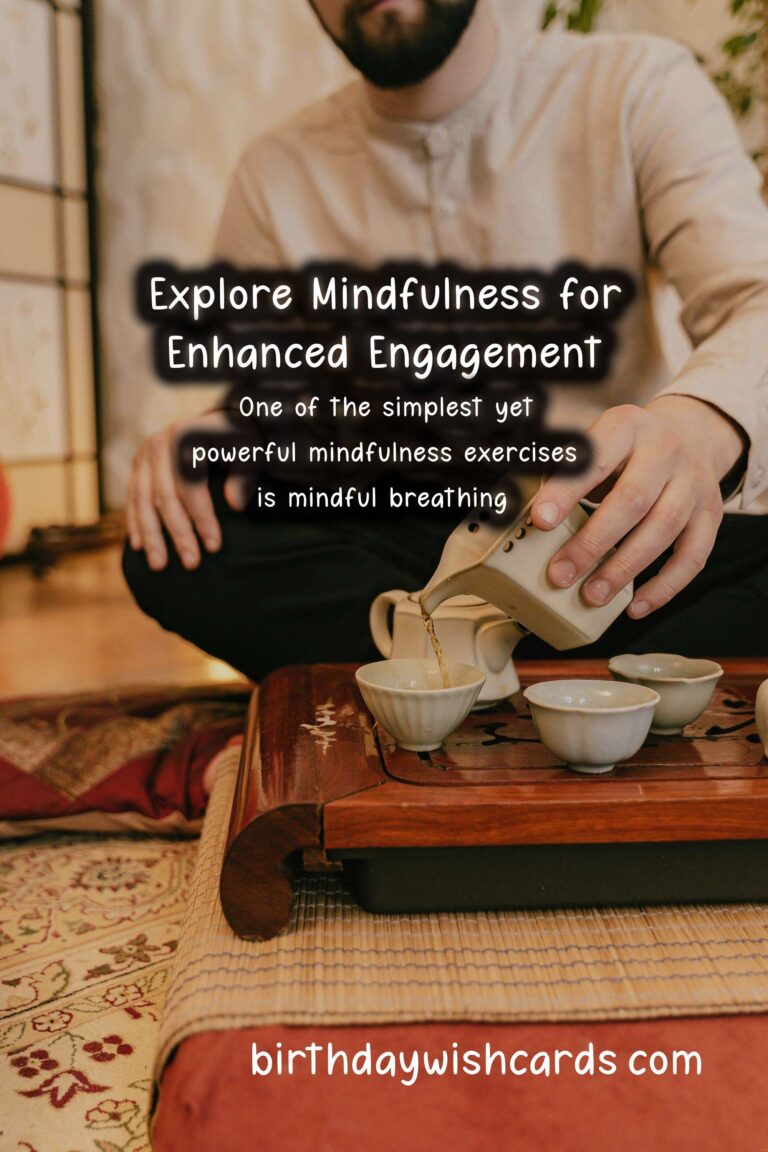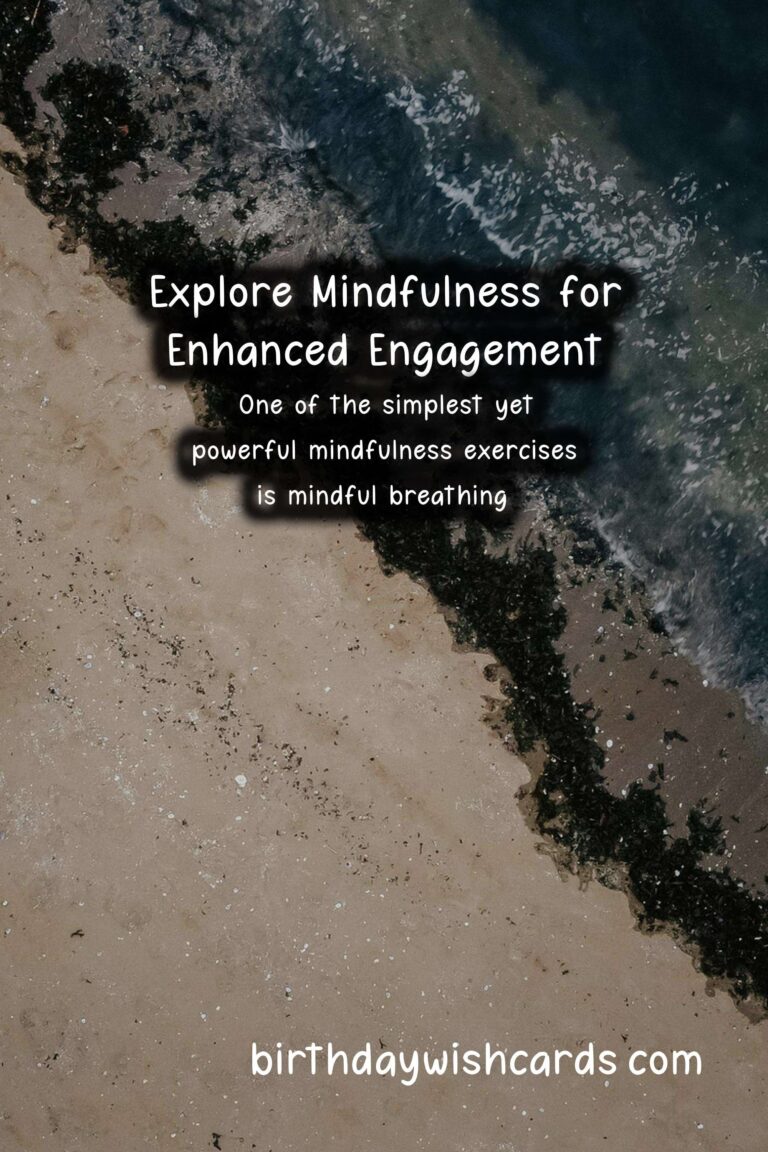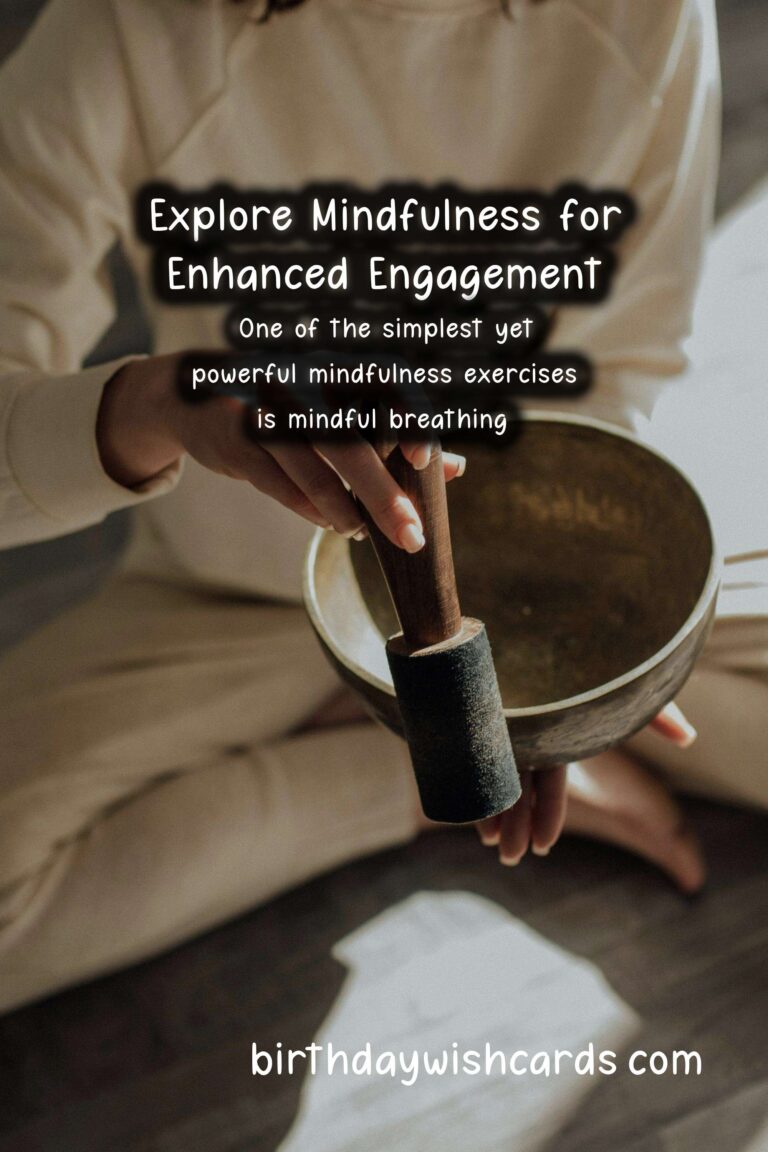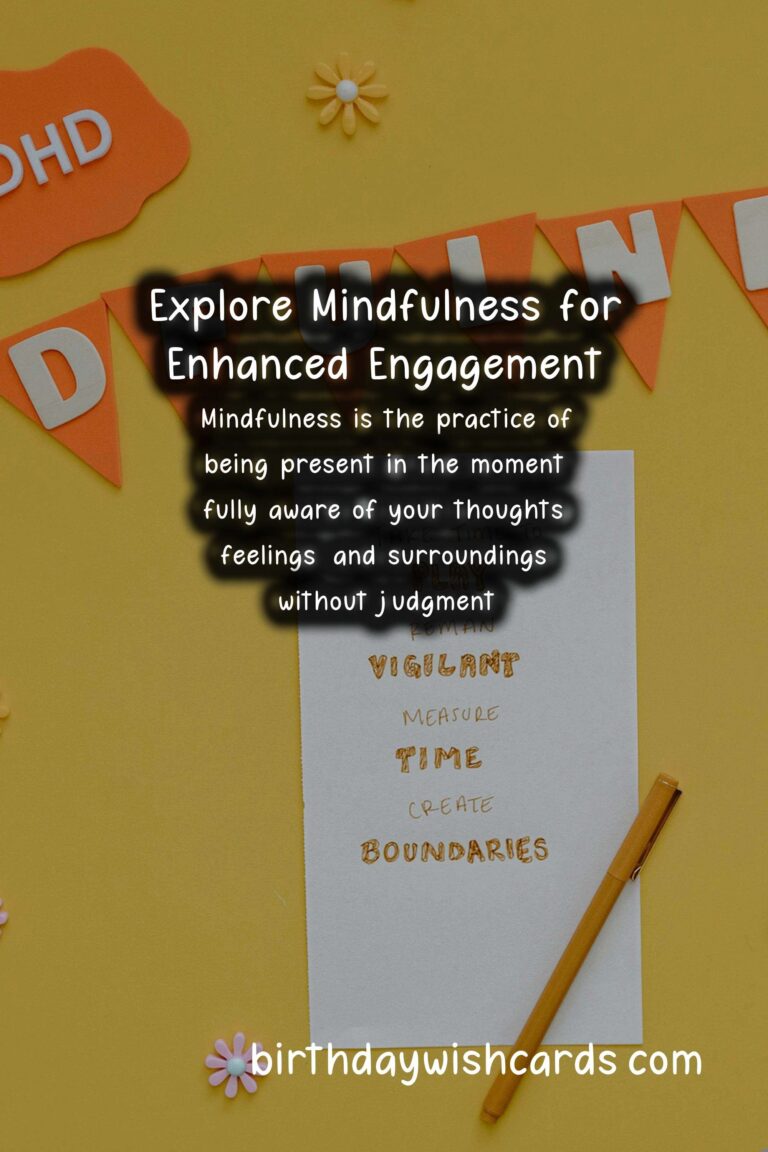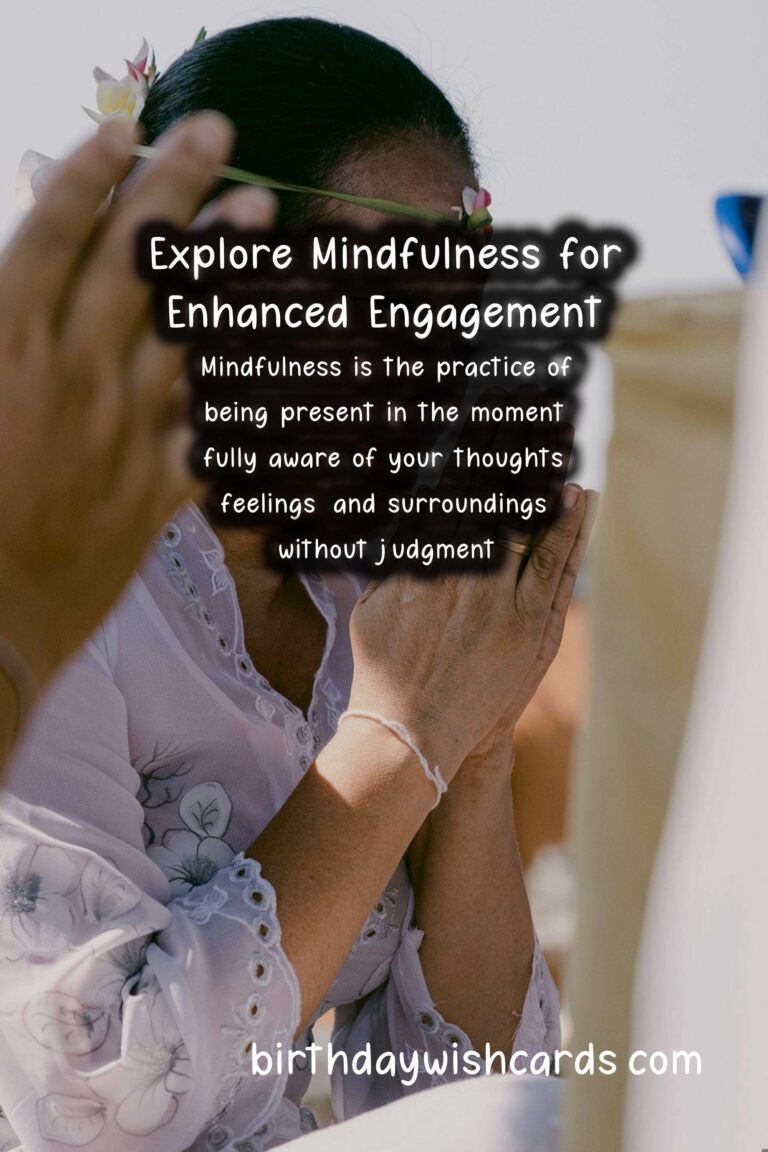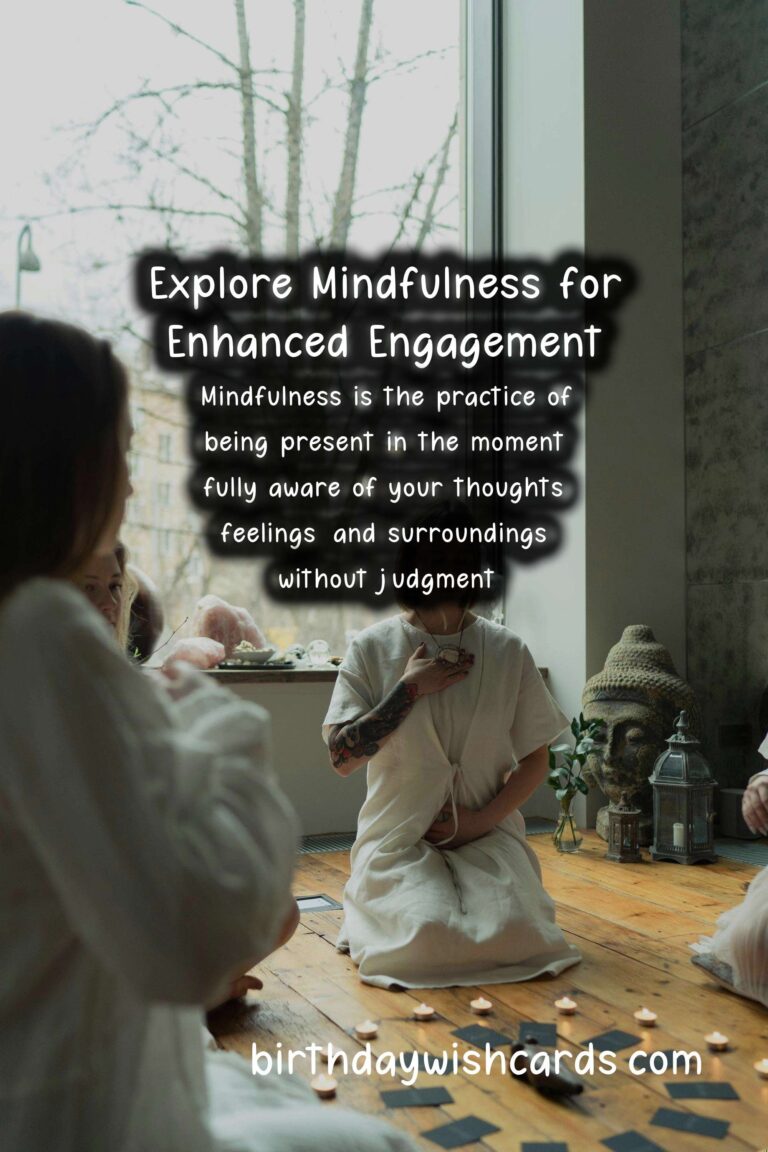
In today’s fast-paced world, maintaining engagement in both personal and professional settings can be challenging. One effective way to boost engagement is through mindfulness practices. These techniques not only enhance focus but also foster deeper connections with ourselves and others.
What is Mindfulness?
Mindfulness is the practice of being present in the moment, fully aware of your thoughts, feelings, and surroundings without judgment. By cultivating mindfulness, individuals can improve their concentration and emotional resilience, key components in engaging with tasks and relationships.
Benefits of Mindfulness for Engagement
- Enhanced Focus: Mindfulness trains the mind to concentrate on the present, reducing distractions.
- Improved Emotional Regulation: Individuals learn to navigate their emotions more effectively, leading to better interpersonal interactions.
- Increased Empathy: Mindfulness fosters a deeper understanding of others’ perspectives, enhancing connections.
- Stress Reduction: The practice can lower stress levels, making it easier to engage fully.
Key Mindfulness Practices to Enhance Engagement
1. Mindful Breathing
One of the simplest yet powerful mindfulness exercises is mindful breathing. It involves focusing solely on your breath, which can help to clear the mind and increase your ability to concentrate.
How to Practice Mindful Breathing:
- Find a quiet place to sit or lie down comfortably.
- Close your eyes and take a deep breath in through your nose, counting to four.
- Hold your breath for a moment and then exhale slowly through your mouth for a count of six.
- Repeat this process for a few minutes, bringing your attention back to your breath whenever your mind wanders.
2. Body Scan
The body scan meditation helps increase awareness of bodily sensations, promoting relaxation and presence.
How to Practice Body Scan:
- Lie down comfortably on your back, legs uncrossed, arms at your sides.
- Close your eyes and take several deep breaths.
- Focus your attention on your toes, noticing any sensations or feelings.
- Gradually move your attention up through each part of your body, spending time on areas of tension.
- Once you reach the top of your head, take a few more deep breaths, and when you’re ready, slowly open your eyes.
3. Mindful Eating
Mindful eating encourages a deeper connection with food, making meals a more engaging experience.
How to Practice Mindful Eating:
- Before eating, take a moment to observe the food in front of you.
- Notice the colors, textures, and smells.
- As you eat, chew slowly and focus on the taste of each bite.
- Pay attention to your body’s hunger and fullness cues.
4. Walking Meditation
Walking meditation combines physical movement with mindfulness, making it a great way to engage with your surroundings.
How to Practice Walking Meditation:
- Find a quiet space where you can walk back and forth.
- Stand still for a moment, taking a few deep breaths to center yourself.
- Begin to walk slowly, focusing on each step.
- Feel the ground beneath your feet, the rhythm of your body, and the movement of your legs.
- Continue for several minutes, maintaining your awareness on the experience of walking.
5. Mindfulness Journaling
Writing can be a powerful tool for mindfulness, helping to clarify thoughts and feelings.
How to Practice Mindfulness Journaling:
- Set aside time each day, ideally at the same time.
- Begin by writing down your thoughts and feelings without judgment.
- Focus on the present moment and your current state of mind.
- Reflect on what you wrote, noticing any patterns or insights.
Incorporating Mindfulness into Daily Life
Incorporating mindfulness practices into your daily routine can enhance overall engagement significantly. Here are some tips:
- Create Reminders: Set reminders throughout the day to take mindful breaks.
- Stay Consistent: Make mindfulness a habit, integrating it into your routine.
- Engage with Others: Practice mindfulness in group settings, such as mindfulness workshops or classes.
Conclusion
Mindfulness practices are essential tools for enhancing engagement, whether at work, in relationships, or in daily activities. By incorporating these techniques into your life, you can improve focus, foster deeper connections, and navigate challenges more effectively.
Mindfulness is the practice of being present in the moment, fully aware of your thoughts, feelings, and surroundings without judgment. One of the simplest yet powerful mindfulness exercises is mindful breathing. 
